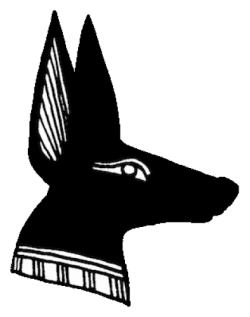Jackal

In certain parts of the world, the jackal often carries negative meaning, and some would argue that even the word “jackal” sounds harsh to the ears. This, however, is not the complete picture, and here we’ll examine some of these symbolic meanings and pinpoint specific aspects of the animal’s nature that has led humanity to classify jackals the way they have.
Perhaps the most iconic role ever played by the jackal was set in the days of ancient Egypt. The god Anubis, who presided over mummification and judged the moral worth of the dead (he weighed the sinfulness of their heart against the Feather of Truth), was frequently depicted with the head of a jackal. This association was so strong that during the mummification process, it was not uncommon for a presiding priest to wear a jackal-head mask as an invocation of this god.
While the Egyptians seemed to have (for lack a better word) an amiable relationship with the jackal, other cultures were not so open to the creatures, in some cases for the very same reason that the Egyptians revered them (a strong association with death). There are some issues involving translations of the word, with different editions interpreting it in different ways, but jackals and other wild beasts often appear in the Old Testament of the Bible as symbols of desolation. Hinduism associates the jackal with Kali, the goddess of death and destruction. Although in Kali's case, greater emphasis is put on the latter capacity than on the former, the ongoing connection with death is clearly being played out in the jackal’s symbolic meaning.
This association of the jackal with death probably stemmed from a relatively straightforward observation of the animal; in addition to being skilled hunters, jackals are also scavengers who feed on the bodies of dead animals, and in that capacity they frequented graveyards and other locations where corpses were found. From there, it was no great leap to connect the creature with the dead, either in a negative or positive fashion.
© Symbols.com
